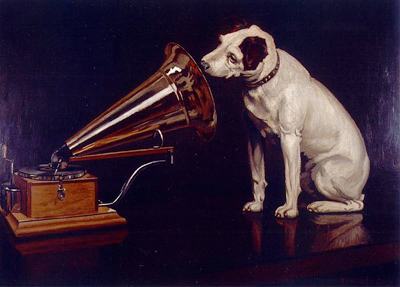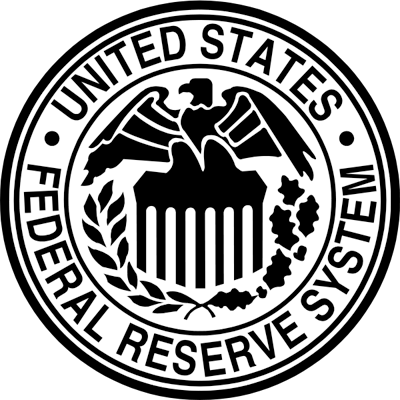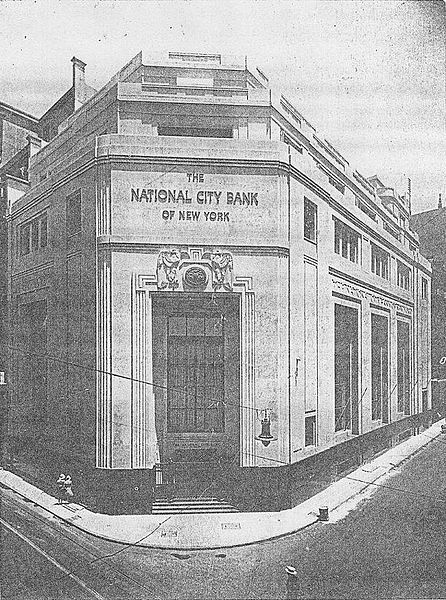Exactly as Hoover settled into office, in March 1929, the first warning sign of economic trouble ahead for the U.S. came into view. It started with someone speculating on a stock--business as usual in the 1920s, right? Wrong. This time, the speculation went very wrong, and exposed the fundamental weakness in the stock market and the economy. View this slideshow to follow the speculation that caused a panic.
March 8, 1929: A Paper Fortune
This image of a dog listening to an early record player is the symbol of RCA--the Radio Corporation of America. RCA was an electronics company founded in 1919, and it was doing well in the 1920s selling record players and radios. But in March 1929, RCA was about to take a wild ride. On March 8, a successful stock trader named Michael J. Meehan decided to drive up the value of RCA stock by buying it and encouraging other traders to buy it, too. In just ten days, they drove up the value by almost 50 percent. In today’s money, the paper value of stock owned by Meehan’s speculators was $100 million. March 22, 1929: Regulation?
Before Meehan and his fellow speculators could begin to sell their RCA stock, something went terribly wrong. The Federal Reserve Board in Washington (the central banking system of the federal government) took notice of the RCA speculation and the boom it created, and threatened to cut way back on the loans it made to banks. This would stop banks from being able to lend money to people to buy stocks, and it would also stop banks from taking out money to buy stocks themselves. This would stop the buying frenzy of RCA stock. As the Board met on Friday the 22nd, anxious Wall Street investors waited. Wall Street is where the New York Stock Exchange is headquartered, and “Wall Street” is often used as a synonym for the U.S. stock market. March 25-26, 1929: The Sell-Off
When the weekend ended and the stock exchange re-opened on Monday the 25th, nervous investors, worried that the Federal Reserve Board would cut off money for loans, began to sell their stocks, and not just RCA stocks. They kept selling the next day, Tuesday the 26th. This sent the value of stocks plummeting: If people are selling a stock to get rid of it quick because it’s no longer valuable, no one is going to pay a lot for it. People who had bought stocks on margin hoping they would become worth a lot of money now found their investment was worth almost nothing. March 25-26, 1929: Margin Calls
People who bought stocks on margin wanted to try to hang on to those stocks until the panic was over, so their value could rise again. But stockbrokers, alarmed at how low stock values were sinking, and afraid that their customers would never be able to pay back what they owed them, began to make margin calls. When people could not pay up, stockbrokers sold their stocks, adding to the panic. March 27: Salvation!
On Wednesday, March 27th, Charles Mitchell, a banker and chairman of the powerful National City Bank in New York (today’s Citibank), stepped in. He announced that his own bank would give out $25 million in credit to stockbrokers and banks. Stockbrokers would no longer have to sell off stocks to make their money back. Relief swept through the nation, and the panic stopped. Margin calls dropped substantially, and people were free to invest again. |
Mitchell’s intervention was unprecedented--a private citizen was propping up the U.S stock exchange. But rather than worrying about the stability of a stock market that was running on borrowed money and one man’s generosity, Americans hailed Mitchell as a hero and went back to buying stock, including stock in Mitchell’s own National City Bank.
Match each feature of the panic of March 1929 to the correct description.
|
RCA
Michael J. Meehan
Federal Reserve Board
Wall Street
Stockbrokers
Charles Mitchell
Mini-crash
|
Speculator
Victim of speculation
Synonymous with the U.S. stock market
Sudden sell-off of stocks
Made margin calls
Made a $25 million loan
Controls money available to lend
|
